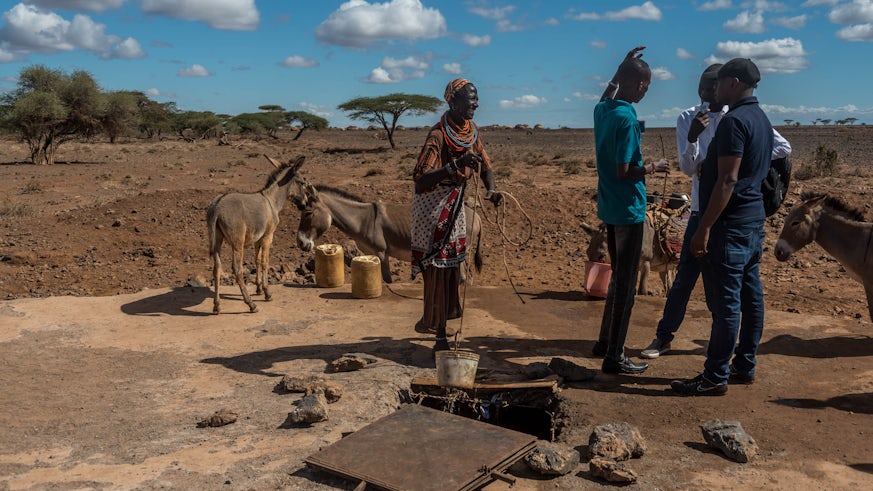Major international project to tackle climate change resilience in the Horn of Africa
26 May 2020

An international team of researchers and organisations has been awarded over €6.7M from EU Horizon 2020 to help tackle food and water insecurity in the Horn of Africa Drylands (HAD).
Led by scientists at Cardiff University with substantial contributions from 14 other partners in 7 countries, the EU project, called DOWN2EARTH, will employ state-of-the-art seasonal forecasts and decadal projections of climate change and translate this into clear and concise information that can be used by farmers and pastoralists, communities, NGOs and governments to mitigate the negative impacts of climate change on rural livelihoods.
A major component of DOWN2EARTH involves improving the accuracy of forecasting climate variability in critical rainy seasons and assessing its impact on the total amount of water stored in soils for agriculture and deeper underground for drinking water supplies.
This improved forecasting will help to better predict impacts on farming, food and water production and increase resilience across this extremely vulnerable region, allowing the population to make better, more informed decisions.
“Adaptation to climate change requires better and more timely information about the expression of climate at the land surface, in soil moisture required to grow crops and groundwater for drinking,” said Principal Investigator of DOWN2EARTH Dr Michael Singer, from Cardiff University’s School of Earth and Environmental Sciences and Water Research Institute.
“This information needs to be delivered to people making decisions at multiple levels of society, from rural agro-pastoralist villagers deciding what and when to plant crops or move their herds, to government ministries developing new land and water management policies, to NGOs mounting humanitarian responses to drought-related famine.”
A key aspect of DOWN2EARTH will be the support given to multi-level stakeholders about to how expand their knowledge of the climate and to better use information that is gathered from climate monitoring and predicting systems.
“We will do this in the form of desktop and mobile phone apps that deliver timely information from our modelling on projected water storage and crop yields for upcoming seasons. This information, based on the best available climate forecasts, will be co-developed with the target stakeholders to ensure it is useful to improve decision making at all levels from village to government ministry,” Dr Singer said.
Under the influence of climate change, the “new normal” in the HAD will be characterised by March-to-May drought about every other year, but it is unclear whether other rainy months will support opportunities for adaptation to this drought-prone situation.
The project focuses on the Horn of Africa drylands (HAD) in Kenya, Somalia, and Ethiopia, one of the most food insecure regions on Earth. The rural communities of the HAD are particularly vulnerable to food insecurity and associated economic losses during drought conditions due to low socio-economic levels and limited ability to respond to these climatic shocks.
The project will also assess the socio-economic dimensions and human dynamics of climate change including feedbacks between climatic shocks, human behaviour and policy implementation.
Ultimately, DOWN2EARTH aims to strengthen regional climate services through capacity building, citizen science, information dissemination, expansion of data networks, and policy implementation.

The broader goal here is to support the co-creation of new climate adaptation policies that acknowledge the needs of rural villagers and also remain faithful to the best available science on future climate change.
Part of this work will be undertaken by project partner, BBC Media Action. Building on their established media partnerships and climate adaptation work in the region, the charity will develop and train journalists from local radio stations to produce accurate and accessible programmes that address issues of climate change adaptation.
“This is part of our larger communication strategy to improve the messaging about climate change and decision options to larger audiences in the region and beyond,” Dr Singer concluded.
Share this story
The School is committed to achieving the highest standards in research and education and to providing a rich and varied research-led environment.


